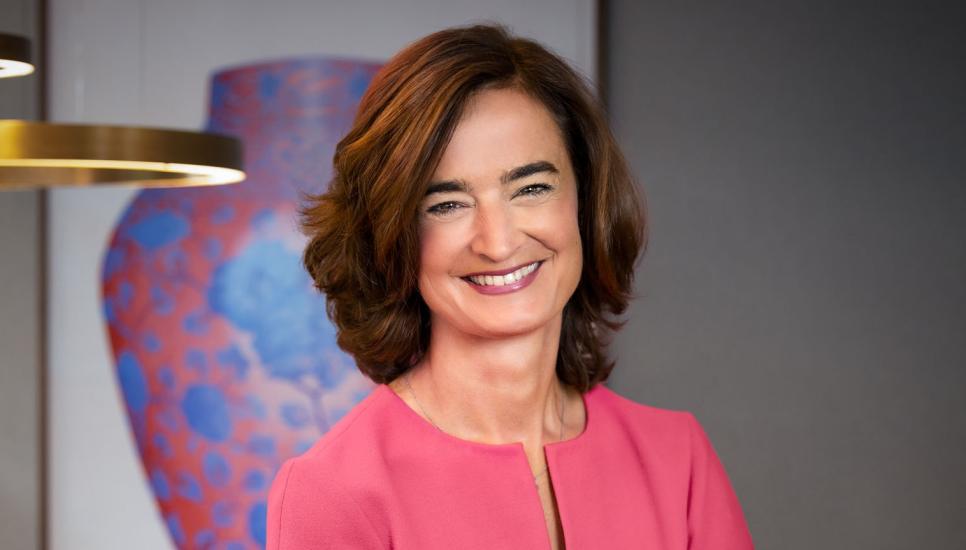Family offices target venture capital investments in new tech

Family offices have an increasing appetite for investing their venture capital in innovative and disruptive health and green technology over the next five years, a new survey by Lakestar reveals.
In partnership with Lakestar, one of Europe’s leading venture capital firms investing in technology companies, led by exceptional entrepreneurs, Campden Wealth invited global families to share their attitudes to venture capital by completing The Family Office Venture Capital Barometer in late 2020. The barometer sought to gauge family outlooks for 2021, in particular tech funds as a rapidly expanding asset class.
Families declared that health, bio and green tech investments were the investment areas they intended to focus on for the medium term future of one to five years. Families also voiced their keen interest in venture capital investments in financial, education and agricultural technology plus artificial intelligence, augmented/virtual reality and space.
CampdenFB discussed some of the key findings from the barometer with Ninja Struye, the chief communications officer and head of investor relations at Lakestar.
 Which findings surprised you the most to discover?
Which findings surprised you the most to discover?
For us at Lakestar, united and driven by our vision for European technology, it’s very positive to observe family offices embracing the opportunities offered by European VC. Most of the participants in the survey have significant allocation to EU Venture and some are even strongly overweight. Looking at data from the last 10 years these family offices should on average have done better than their peers investing in the US.
Most respondents say they build their portfolios by diversifying across sectors and vintages using both fund and direct investments—is this the most effective strategy for growth and returns?
As with other sectors the key question is what the primary targets are, and which is the tolerated risk return trade-off. In particular family offices, with small or no dedicated VC investment team looking to build a diversified exposure to VC, I would say investing in primaries with experienced fund managers provides the best risk-return outcome. In addition to this some strategic direct investments in the sector where the family has its expertise can prove valuable both for the operating business and the financial return profile.
A total of 70% of respondents’ investment capital is allocated to Growth Stage (Series B+)—do you think they are being too cautious by not investing in earlier stages?
In my view this is largely in line with expectations. Early stage investments require comparably more resources to source, monitor and manage. Hence for families with no dedicated VC team that has the network and experience in place to access and assess such deals it’s advisable to focus on the growth stage. For families that want to build up exposure to the most promising sectors early on without incurring significant risks, it’s advisable to partner with established managers having profound deal access and fund management capabilities.
 What venture capital factors should they consider when entering tech investments, the most popular space?
What venture capital factors should they consider when entering tech investments, the most popular space?
In the current environment there’s a hype building up around venture capital and the entire technology sector. This makes a long-term view, informed by behavioural change of consumers, macro-economic factors as well as (geo)-political and regulatory elements crucial. Only such an informed investment approach will allow you to identify trends and avoid the fads. On top of that venture capital should be seen in the broader context of a well-diversified portfolio. This allows families to achieve more favourable risk-return profiles which can be tailored to the needs and preferences of the family. For families without dedicated resources to cover the venture space it’s advisable to look for well-established partners. However, also their selection of the best managers and deals is key as there is a considerable performance gap between the top quartile and the rest.
A shorter time horizon (down from 10+ years) was the most popular (50%) element to change in the asset class for respondents to increase their allocation—should that change be made?
Startups take time to mature and unfold their true potential/find their niche (between 5 to 8 years) hence given a long-term view it is best to apply a patient capital investment approach.
Alternatively, there’s the possibility to do deal-by-deal investing/co-investments which increases the concentration risk significantly (no portfolio diversification), but depending on the company there’s the possibility of a shorter investment term.
How will these findings inform Lakestar’s engagements with family office and private investors in venture capital?
The outcome of the research re-emphasises the interest in our asset class and the growing importance of both Venture Capital and European allocations in the portfolios of family offices.
Lakestar exists to find, fund and grow the European technology companies capable of reshaping our modern life.







